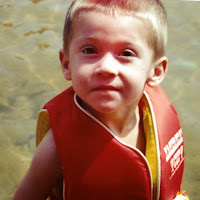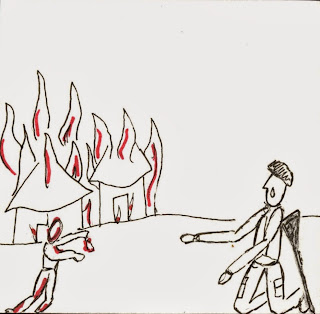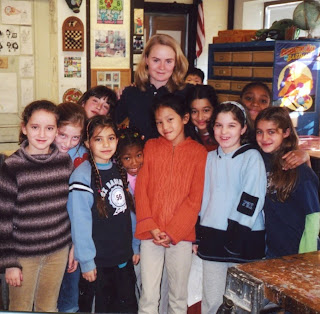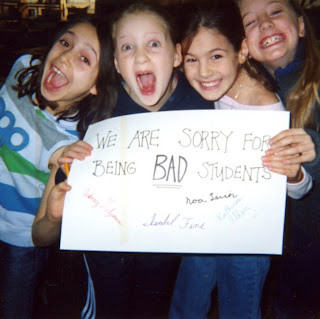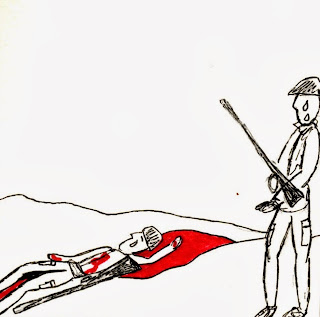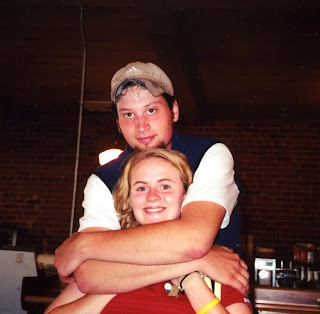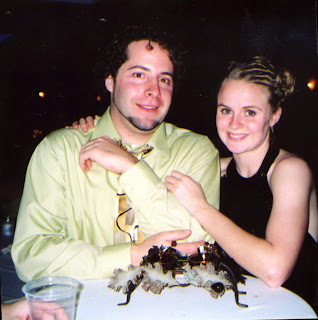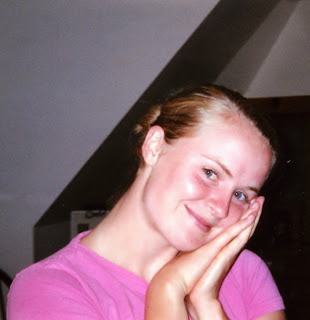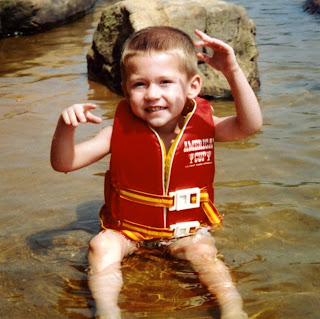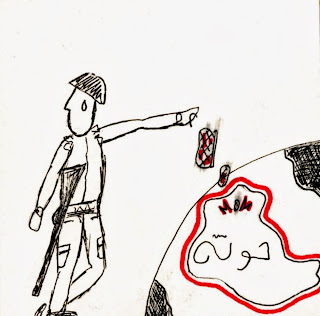Poems by Esme Sammons Positive Spin
Positive Spin
“
His sense of humor and positive outlook make him a favorite on the amputee ward.”—VFW Magazine, “Wounded Vets Rebound”
The clock is broken and marks eternal 3 o’clock.
Her hand rests on his arm, pale against the tan;
Her face an oval cut from paper.
He sleeps for now.
If she speaks, her lips will surely shatter—
Like cheap pottery—
And anyway,
What will she say?
His chest moves with tidal breath,
Rising and falling like coastal waves.
Under the blanket,
Ridges of his legs stretch uneven—
Diminished.
Later she will weep as she folds the laundry
And finds his single sock.
Above is only BlueStrangely quiet after impact
Above is only blue.
Percussive roar now muffled
comes from an unimportant distance
--disconnected--
More felt than heard,
Swaddled as if in cotton, it thumps
counter rhythm to the internal beat,
but fades in numbing fingertips.
Crimson seepage spreads a shroud,
consumed by thirsty sand.
Above is only blue.
 For in that Sleep--
For in that Sleep--
If I shut my eyes theirs will open in the dark,
silverAgainst the blood red screen of my lids I watch them open—
They can see—
They can smell me here.
I don’t know I don’t know
idon’tknowidon’tknow
Their voices; clogged with roots and clotted earth they—
whisper
Telling of their (that unknown world from which no traveler returns) dreams—
Beckoning, questioning:
Why why why why whyPeace will come at such a price if only I—
I am full of the hum of voices,
Here in the dark—
Mustn’t mustn’t musn’tIf I open my eyes I—
Human elementalWhen broken into its most essential parts, the human body is made of
65% Oxygen
18% Carbon
10% Hydrogen
3% Nitrogen
1.5% Calcium
1% Phosphorous
0.35% Potassium
0.25% Sulfur
0.15% Sodium
0.15% Chlorine
0.05% Magnesium
0.0004% Iron
0.00004% Iodine
And trace amounts of flourine, silicon, manganese—
zinc, copper, aluminum, and arsenic.
Monetarily speaking, the sum of these parts is worth less than a dollar.
But we are so much more!
(so much more)
Each element could be isolated, then stored in glass jars—
Such tiny jars!—
And displayed on the mantel.
Meaningless.
As meaningless as that small lump of bronze
(elemental tin and copper)
Called the
Medal of Honor Given in reward
(supplication apology payment) for valor in action.
But Sn+Cu loses all value—
When the recipient is a small woman dressed in black,
Cradling a carefully folded flag.
Stream— September 11, 2001
Towers fall in on you on themselves
On the world
Crash
Burn and churn and break and
Kill and smoke and clouds and
Death and bits and—
Nuclear wrongness
Molecular weirdness
Broken broken smoke and soot and
Bits and pieces—
Hell begets hell begets
A baked land that, with parched mouth,
Calls— overflowing with maybes and where tos and how will I?
Mama please I’m hungry DaddyohDaddy
I’m so thirsty Mama—
Watching children die face down in the dust in pain
Bloated bellies, flies—
Ohdon’tleaveyourbabies
Nodon’teverleaveyourbabies
See the beatings the horror the war the rape
Get on a train for tomorrow
A hope a prayer for no more tears
And no more blood no more hungry
Mouths and pleading eyes
Overflowing with words and prayers and oh god have mercy on me
Cramped crowded squeezing hoping
Ohgodohgodohgodoh
Fragments of brain and bits of dreams and technology and the
Bright bright bright bright future—
“this is the way the world ends
this is the way the world ends
this is the way the world ends”
Not with a whimper but with screams and screams
And screams.
--Esme J. Sammons 2008




 Positive Spin
Positive Spin








